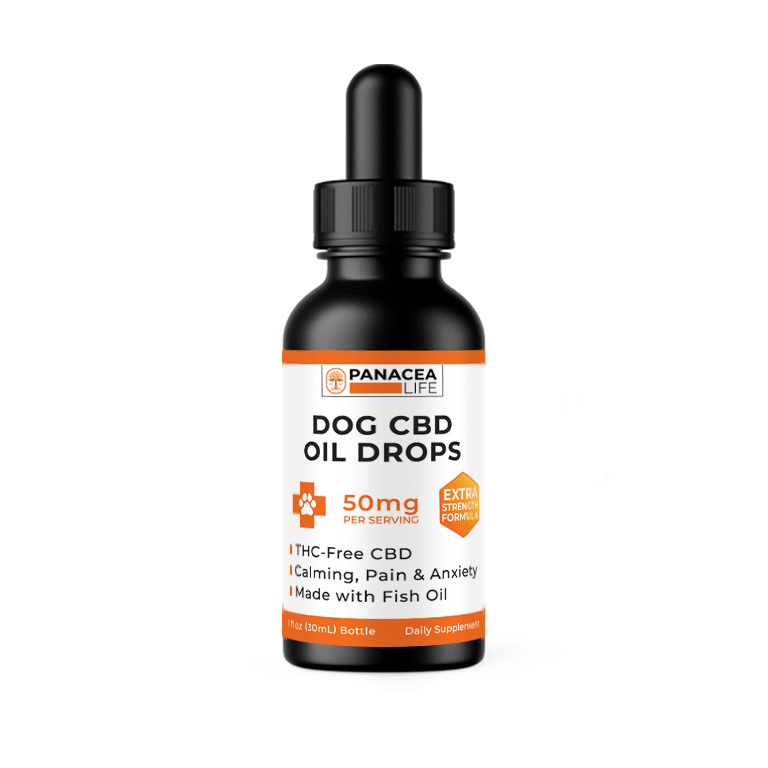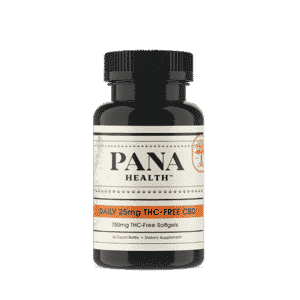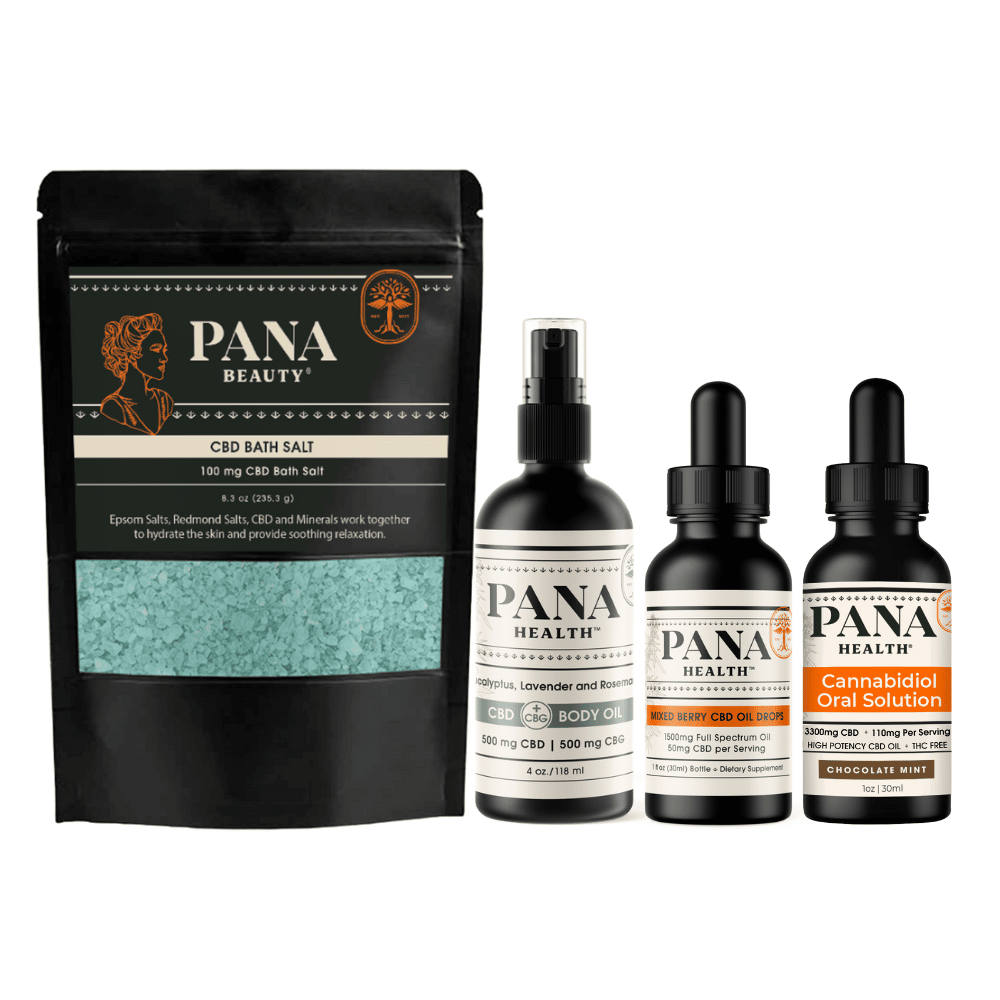The writer Colette once said that a perfect companion should never have less than four feet. For many people, this is true: the bond that they have with their dog (or cat!) is more reliable than that with any family member. It is therefore understandable that we will go to great lengths to ensure the safety and wellbeing of our animals. From that perspective, CBD for animal companions makes a lot of sense.
Cannabidiol
CBD is the abbreviation for ‘cannabidiol,’ and it has been used, up until now, mostly to help humans. But the pet care market is catching up! Researchers say that CBD in the pet care market will be one of the fastest-growing segments in the entire CBD sector by the end of 2020. But what do veterinarians say? In this article, we hope to answer your questions. First, we look at what CBD is and how it works. Then, we’ll connect it to your pet: is it safe? Are there any downsides? How should you give it to your beloved little fur-face? What conditions can it help?
There is some controversy surrounding CBD products and animals, because the industry is new and somewhat underregulated. We’ve asked vets some relevant and pertinent questions. So, let’s get started!

What is CBD?
A part of marijuana
Cannabidiol or ‘CBD’ is a cannabinoid and can be found in marijuana and hemp plants. However, most CBD products are made only with hemp which is legally required to have .3% or less Tetrahydrocannabinol (THC). THC is the compound responsible for the high associated with Cannabis. CBD is not psychoactive, and it will not get you (or your pet!) ‘high.’
CBD triggers the ECS
Cannabidiol interacts with the body through the Endocannabinoid System (ECS). In short, the ECS is an essential modulatory system that helps the endocrine and immune systems to work. It also plays a vital role in the function of the brain. The ECS works at the cellular level to maintain balance between systems in the body. All mammals, fish, birds, and reptiles have an ECS system. (Some sea urchins and leeches have been found to have ECS systems as well!) This is what makes it so animals can also be treated with CBD.
What does the ECS do, and how does CBD work?
The ECS system has two main receptors.
- Cannabinoid Receptor 1 (CB1) is found predominantly in the central nervous system (brain and the nerves of the spinal cord)
- Cannabinoid Receptor 2 (CB2) is located predominantly in the peripheral nervous system extremities, the digestive system, and specialized cells in the immune system.
When a body is not working as it should, the ECS is activated to help remedy the situation. Lifestyle choices can activate or deactivate the ECS. CBD supports healthy ECS activity. CBD molecules fit neatly into the receptors of the ECS and will bind to receptor CB1 (in the spinal cord) and provide relief from discomfort. Alternatively, receptor CB2 binding with CBD will signal the immune system if inflammation is present.
So, is CBD safe to use on my animal?
Yes, it is! According to a 2017 World Health Organization report, CBD is non-toxic and safe for use on animals.
Veterinarians across the board agreed on the following:
- Always consult with your vet first! Most vets are familiar with CBD products and their effects. They will likely not provide access to CBD products, but they can easily be ordered online or usually found in an independently-owned pet shop.
- THC is the substance in marijuana that is psychoactive. THC in large doses can be harmful to your animal.
- Check for organic options. Make sure it is in its purest form and without any additives.
- Make sure the product you choose was tested by a third party lab.
- CBD tinctures are the most effective and easiest to administer.
- Dosage is important. Less is always more! Veterinarians mean that it is safer to start with a small dosage and increase it over time, if needed.
The downsides to CBD
In most cases, the use of CBD shows no severe side effects. It must be administered responsibly, but it is safe for use in humans and pets. Just be sure to buy the “real McCoy” by reviewing your product’s certificate of analysis.
How do I administer CBD to my pet?
The shapes and sizes of CBD products for animals
There are loads of CBD animal products on the market nowadays.
It seems the most favorable is CBD oil as, according to a recent study done on dogs specifically, it reached the highest concentration in the blood and stayed in the bloodstream the longest. It acts fast!
You can also get CBD for animals in the following shapes and sizes:
- Dog treats – probably be the simplest way to get you pooch to take his “medicine.”
- Topical ointments – this form of CBD will most often be used for animals suffering from a skin condition.
- Capsules – these can also be easily hidden in your animals’ food.
- Oil – It is most probably the most popular form of CBD for pets. You can use a dropper to add it to your pet’s food or a treat.
The benefits of CBD for your pet according to vets
If only they could speak
According to the American Kennel Club, there have been no formal studies yet as to if CBD oil for dogs actually works. If animals could speak, it would have been so much easier to know! We don’t (and won’t) know. What we do know is that animals seem to be less reactive to pain when they take a CBD product.
Specific benefits
According to scientific and veterinary studies, the following benefits have been identified when using CBD in animals:
- Pain relief – CBD can assist in alleviating discomfort associated with inflammation. CBD is non-psychoactive but has some of the same benefits as THC.
Your pet won’t get ‘stoned’ from CBD, but the minuscular amounts of THC will give much of the same therapeutic benefits and make your pet less reactive to low-level pain stimuli.
- Cancer – CBD can help comfort your animal. It has antiemetic properties and can thus assist in treating nausea and vomiting associated with cancer.
- Inflammation – CBD is effective in aiding the treatment of auto-immune diseases such as arthritis.
- Epilepsy – Animals with muscle spasms and tremors may benefit as CBD is an anticonvulsant and could be useful in reducing the frequency of these happening.
A study published by an assistant professor at Colorado State University College of Veterinary Medicine and Biomedical Sciences showed that CBD might help to reduce the number of seizures your pet may have.
- Stress/Anxiety/Depression – Some animals will show signs of stress or anxiety by pacing. Some dogs may bark excessively or have an accident indoors despite being trained to go outside. The brain (home of the majority of CB1 receptors) produces serotonin, which has a calming effect on your four-legged friend – ultimately assisting with the above-mentioned. CBD will help the receptor to work correctly and make your dog less reactive to certain things.
- Promotes homeostasis – By regulating body temperature, discomfort, and inflammation, CBD helps the body to maintain balance.
Vets agree that CBD helps with the symptoms of the above-mentioned health problems in animals.
It is essential, though, to choose a product made for animals from a reputable manufacturer. Learn more about choosing a high-quality source of CBD online here. Human-friendly CBD products in gummy form, for example, might contain Xylitol, which is toxic for animals.
Some questions to a vet about CBD products
- Can veterinarians legally recommend CBD oil to their clients for animal use?
- Legally – No! Although the 2018 Farm Bill loosened the restrictions applying to hemp-derived CBD, restrictions are still placed upon a vet’s ability to recommend and prescribe CBD for pets. Should a veterinarian choose to recommend and prescribed CBD, s/he might be at risk of legal action being taken against them. Some vets might even be hesitant to discuss the matter at all.
- Are there any risks associated with CBD when administering it to your pet?
CBD is considered safe to use on your pet. Studies by veterinarians have found that CBD in dogs, as in humans, is metabolized by the liver. A canine study found that the liver enzyme ‘alkaline phosphatase’ increases during CBD treatment.
Further tests also proved that the dogs’ livers weren’t failing and came back clear. Although the latter has been established, most veterinarians would think twice about giving CBD oil to a dog who is already suffering from liver issues.
There are specific potential side effects noted like sedation (drowsiness), a dry mouth due to a decrease in saliva production as well as low blood pressure. Otherwise, no other significant risks were determined.
Can I use CBD with my pet’s other medication?
There is a possibility that CBD can interact with other supplements or medications that your pet is currently receiving, especially those which also need to be broken down by the liver. We don’t know 100% yet precisely which ones and in what way the interaction takes place. Your vet should know more.
The main reason we don’t know is that research into this subject has been blocked by the old laws surrounding marijuana and hemp in this country. In people, we know that there are a few suspected drug interactions between CBD and certain blood pressure medications, anti-epileptic drugs, and antidepressants. In pets, however, we don’t exactly know for sure.
So, yes, this is part of the reason why your vet might be hesitant to discuss the benefits of CBD for your pet. It has been proved, however, that there are little or no side effects associated with using the products.
- How long does it take for CBD to start working if I give it to my dog?
Various factors can play a part. It depends on the condition of the product or oil you are using and the specific ailment you are treating.
-
- Some pet owners noticed that anxiety in dogs will decrease within 30-60 minutes and that they will get calm.
-
- In more complex and chronic matters, it might take a consistent dosing schedule between two to four weeks before you see actual results.
- Another factor that might play a role in how it is administered – CBD oil from a dropper might have a faster reaction time than that of a CBD treat.
In the end, results may differ from dog to dog, so there is no clear-cut answer to this question.
- Will my pet get “high” on CBD? No chance! The compound responsible for inducing the “high” of marijuana is called THC, and there are minuscule amounts of THC in CBD products for pets. It is so insignificant that it will not affect your pet.
- Where can I buy CBD for my pet? You can buy high quality CBD online, in dispensaries, or from many independently-owned pet stores. The best place to search for CBD products would be online, as many online stores carry these products.
- Is CBD oil safe to use in cats?
CBD is safe to use in comparison to other products with the same effect. CBD derived explicitly from the hemp plant is considered safe. It does not cause a “high” and is not intoxicating. It has been tested on animals as well as on humans and found to be safe when used on cats and dogs.
The doctor is in – the final word.
An evolving, but exiting sector
The American Veterinary Medical Association (AVMA) believes that the research on the treatment of animals with CBD is still limited and evolving. But there are many success stories! It can’t be disregarded. Some veterinarians think that due to a shortage in the variety of drugs available, CBD products can be a suitable, effective alternative with little or no side effects. Hopefully, the years to come will rapidly advance the information we have about CBD products and how it can be more beneficial to our furry friends.
















